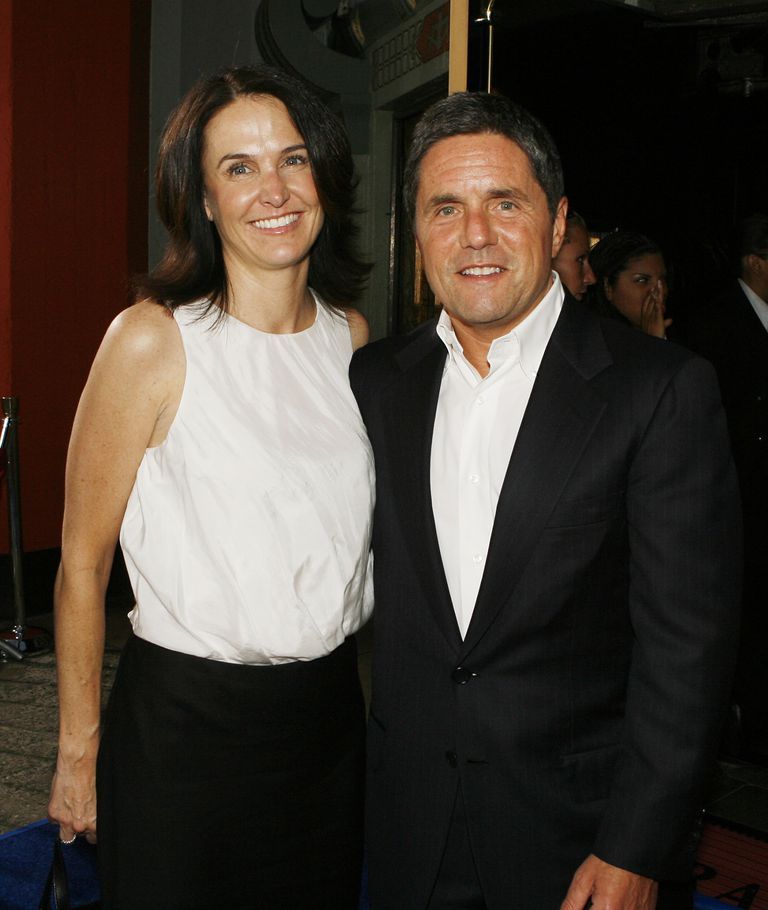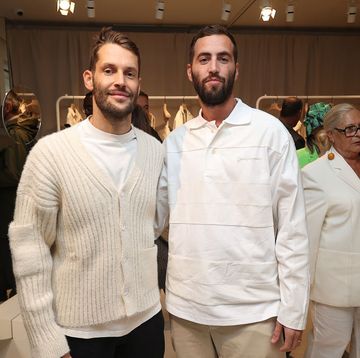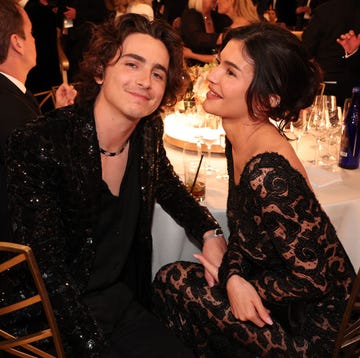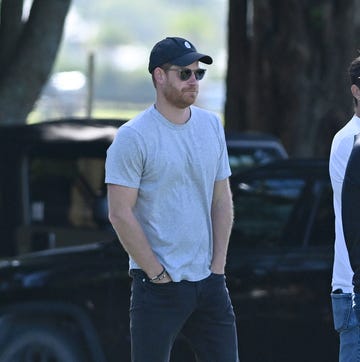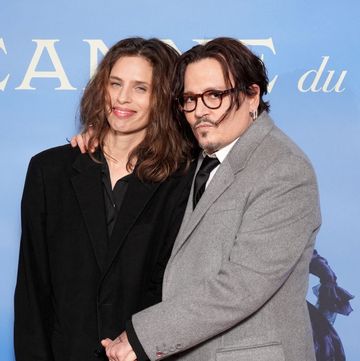Het grote Harvey Weinstein-schandaal begint steeds meer op een uitermate trieste Hollywood film te lijken. De voormalig manager van Rose McGowan heeft afgelopen woensdag zelfmoord gepleegd. Haar familie wijst nu in een uitgebreid statement met de vinger naar Harvey Weinstein.
Rose McGowan viel Jill Messick aan in haar boek
Jill Messick, 50, was McGowans manager in januari 1997, het jaar waarin McGowan verkracht zou zijn door Weinstein tijdens het Sundance Film Festival. In haar book Brave schreef McGowan over Weinstein en Messick:
'Jill vertelde me dat deze man een ongelooflijke hoeveelheid 'macht' had in Hollywood. De manier waarop ze over hem sprak, hartstochtelijk en haast ademloos... Na de verkrachting bood ze maar weinig hulp.'
'Tijdens de periode na het misbruik kon ik niet stoppen met huilen. Ik belde haar (Jill) op. Het was zo f***ked, ze raadde me aan om het te zien als iets dat mijn carrière op de lange termijn zou helpen. Ik voelde me alsof ik in een spookhuis dwaalde en alle spiegels mijn ergste nachtmerries reflecteerden. En het instinct van mijn manager was om alles te negeren, iets dat me volledig in de war bracht. Hoe kon ze het niet weten? En als ze dat deed, hoe kon dan de vrouw die ik vertrouwde met mijn leven, mij in bedwang houden?
Familie van Jill Messick schrijft ijzersterk statement
Na het overlijden van Jill roept haar familie middels een statement op Hollywood Reporter op om 'de kracht van woorden niet te onderschatten' en 'niet alles direct voor waarheid aan te nemen'. Hoewel Jill al jaren aan depressies leed, zouden de (onterechte) beschuldigingen haar parten hebben gespeeld. 'Jill werd nevenschade in een al gruwelijk verhaal', zo schrijft haar familie.
Hieronder het volledige statement van de familie van Jill Messick:
"The Movement" just lost one of its own.
Jill Messick was a mother of two children, a loving wife and partner, a dear friend to many and a smart entertainment executive. She was also a survivor, privately battling depression, which had been her nemesis for years.
Today she did not survive. Jill took her own life.
Jill was victimized by our new culture of unlimited information sharing and a willingness to accept statement as fact. The speed of disseminating information has carried mistruths about Jill as a person, which she was unable and unwilling to challenge. She became collateral damage in an already horrific story.
Jill believed in the Movement. She supported every woman finally coming forward to share their dark truths and expose those who had committed previously unspeakable deeds. She was loyal. She was strong. Jill was many things, but she was not a liar.
Over the past few months, many women have come out with allegations against Harvey Weinstein, including Rose McGowan, who has repeatedly spoken with the press, striking out against not only her alleged attacker, but a great many others. One of them was Jill, who chose to remain silent in the face of Rose's slanderous statements against her for fear of undermining the many individuals who came forward in truth. She opted not to add to the feeding frenzy, allowing her name and her reputation to be sullied despite having done nothing wrong. She never chose to be a public figure; that choice was taken away from her.
Now that Jill can no longer speak for herself, it's time to set the record straight.
In January 1997, Jill was an entry-level manager at Addis Wechsler. One of her first clients was Rose McGowan, and one of Jill's first duties was to set up a breakfast meeting with Harvey Weinstein during the Sundance Film Festival. Following the meeting, Rose told Jill what had happened — that she made the decision to remove her clothes and get in the hot tub with him — a mistake which Rose immediately regretted. Rose never once used the word rape in that conversation. Despite this, Jill recognized that Harvey had done something untoward to Rose, if not illegal. She immediately went to her bosses, the partners of Addis Wechsler, to recount Rose's story and to insist that they immediately address the situation. They told Jill that they would handle the situation. The ensuing arrangements between Rose and Harvey were then negotiated, completely without Jill's knowledge. At that time, all Jill knew was that the matter was settled and that Rose continued making films with the Weinsteins. She never knew any details until recently, when Rose elected to make them public.
Ten months later, in November of 1997, Jill received a call from the Miramax exec VP of production, recruiting her for a job as an executive at Miramax Films working in production in Los Angeles. Jill was hired based on merit and her excellent work of over two years as a young development executive working with Woods Entertainment (prior to her time at Addis Wechsler).
Rose's most recent round of press to promote her book has included new stories involving Jill. The constant press attention Rose has garnered in print and on national TV led to Harvey Weinstein releasing two documents. One of these was an email that Jill wrote to him months prior to the first New York Times piece coming out, and at his request. In this email, Jill offered the truth based on what she remembers Rose telling her about the Sundance account. In the face of Rose's continued and embellished accusations last week, Harvey took it upon himself to release the email without her consent.
Five years ago, Jill suffered a manic episode. Anyone familiar with bipolar disorder knows that it is a cruel and vicious disease. With the help of doctors, her family and friends, Jill rebounded. Jill had fought to put her life back together. After a long job search, she was in negotiations to run the production division for a new entertainment company.
Seeing her name in headlines again and again, as part of one person's attempt to gain more attention for her personal cause, along with Harvey's desperate attempt to vindicate himself, was devastating for her. It broke Jill, who was just starting to get her life back on track. What makes Rose's inaccurate accusations and insinuations against Jill ironic was that she was the first person who stood up on Rose's behalf, and alerted her bosses to the horrific experience which Rose suffered. Twenty years ago, as a very junior person in a management company hierarchy, Jill exhibited her integrity in doing the right thing — she raised the red flag with the heads of her firm. In the face of inappropriate behavior, Jill handled the situation appropriately.
Hers is one of the only stories that has stayed consistent over time as we watch other media reported tales morph to beget further attention.
While journalists serve an important role in exposing predatory behavior, we are seeing irresponsible choices and an addiction to sensationalism which leads to inconsistent storytelling. The media is a powerful tool not to be taken lightly. Most individuals would be horrified to have their name spotlighted in a major international news story — let alone their photograph. We cannot forget that the media is a fearsome tool which cannot be used indiscriminately or even inadvertently to create further victims.
There is a responsibility when using a platform to accurately expose criminals, predators, mistruths and misdeeds while protecting the actual truth of third parties.
As we collectively seek to take action in an effort to right the wrongs so brazenly and inhumanely repeated for a generation, we must not forget one simple truth: Words have power. While we illuminate the dark corners for hidden truths, we must remember that what we say, particularly in the media, can have just as much impact if not more than our actions. We must ask more of ourselves, and of each other. We must take a moment to consider the ramifications and consequences of what we say and what we do.
Words matter.
Someone's life may depend on it.
Bron: Harper's Bazaar

